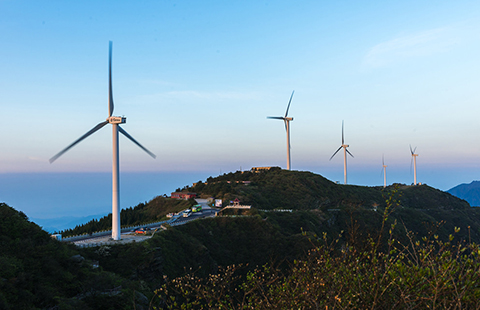
A top United Nations official said Chinese President Xi Jinping will be giving his thoughts on ecological civilization when he addresses the opening of the Paris climate change talks, which run from Monday until Friday.
Janos Pasztor, the UN's assistant secretary-general on Climate Change, said he also believes that China's determination to tackle climate change could speed up its shift from energy- and resources-intensive models.
He said the concept of an ecological civilization reflects a shift in China's development policies, and is a concrete way to promote and achieve sustainable development.
After Xi Jinping became China's president in early 2013, the new leadership has raised the concepts of "Beautiful China" and "Ecological Civilization", which make up of one of five pillars of China's society.
"And it is of particular significance for the implementation of the 2030 Sustainable Development Agenda of the UN and global efforts to address climate change," said Pasztor.
"This shift is essential because taking timely and universal action on climate change is the way the world can achieve the Sustainable Development Goals to end poverty, build stronger economies and safer, healthier societies everywhere," he said.
Pasztor said that China's recent development pathway will help it tackle increasing pressure from the consumption of resources and degradation of the environment.
"It will also demonstrate to the rest of the world, and to other developing countries in particular, that it is possible to pursue a new development path that is more sustainable and climate friendly," he said.
To help realize the development pattern shift, China has slowed its economic growth from the previous two-digit paces to an annual growth of about 7 percent, which has been called an economic new normal.
Pasztor said China has already gained much social consensus to achieve the development pattern transformation as the public's awareness of Chins in terms of environmental protection and low-carbon development has increased.
"Public awareness about the need to address environmental degradation, pollution, and climate change has significantly increased in China over the last two decades," he said.
Pasztor said the public is more engaged on these issues than ever before and people understand that protecting the environment has direct benefits for health and the quality of life.
"This growing public concern has led the government to take more ambitious policies and measures. But we will need action from all sectors of society, including government, businesses, and the public to build a truly sustainable future," he said.








